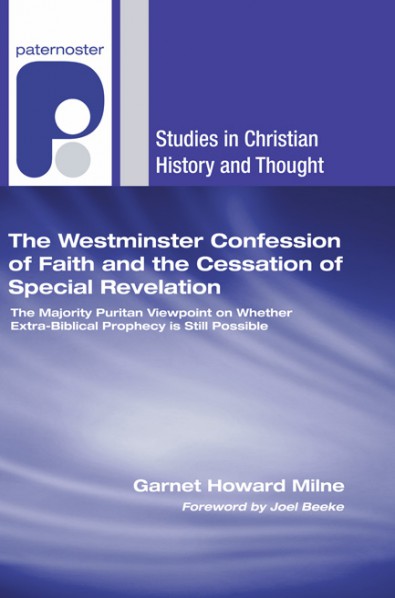The Westminster Confession of Faith and the Cessation of Special Revelation
 Garnet Howard Milne, The Westminster Confession of Faith and the Cessation of Special Revelation: The Majority Puritan Viewpoint on Whether Extra-biblical Prophecy is Still Possible (Studies in Christian History and Thought; Milton Keynes: Paternoster, 2007), 362 pages, ISBN 9781556358050.
Garnet Howard Milne, The Westminster Confession of Faith and the Cessation of Special Revelation: The Majority Puritan Viewpoint on Whether Extra-biblical Prophecy is Still Possible (Studies in Christian History and Thought; Milton Keynes: Paternoster, 2007), 362 pages, ISBN 9781556358050.
This book discusses the circumstances surrounding the Westminster Confession of Faith (the most influential confession in the English-speaking Reformed tradition today), and it does so from a particularly interesting angle. Milne asks: What did the framers of this confession make of revelatory dreams and other signifying means by which the believer might be guided, and how did they reconcile their belief in the continuation of these means of divine communication with the WCF’s disavowal of continued (viz. “special”) revelation after the closing of the biblical canon? Milne discusses this issue from the point of view of one who appears to affirm the WCF in all its particulars, but his treatment of the topic is balanced and fair, his research is impressive, and his writing is engaging.
Although Milne’s position is not likely to find sympathy among Pentecostal readers, his book is a fascinating read and one that many Pentecostals will want to engage.
Pentecostals in particular will be interested in learning something of the history of the cessationist argument. I found it fascinating that only one out of the scores of arguments issued against the continuation of miracles centered on 1 Corinthians 13. Apparently, this prooftext did not become a live wire until sometime after the birth of modern Pentecostalism.
Category: Spirit, Winter 2009


